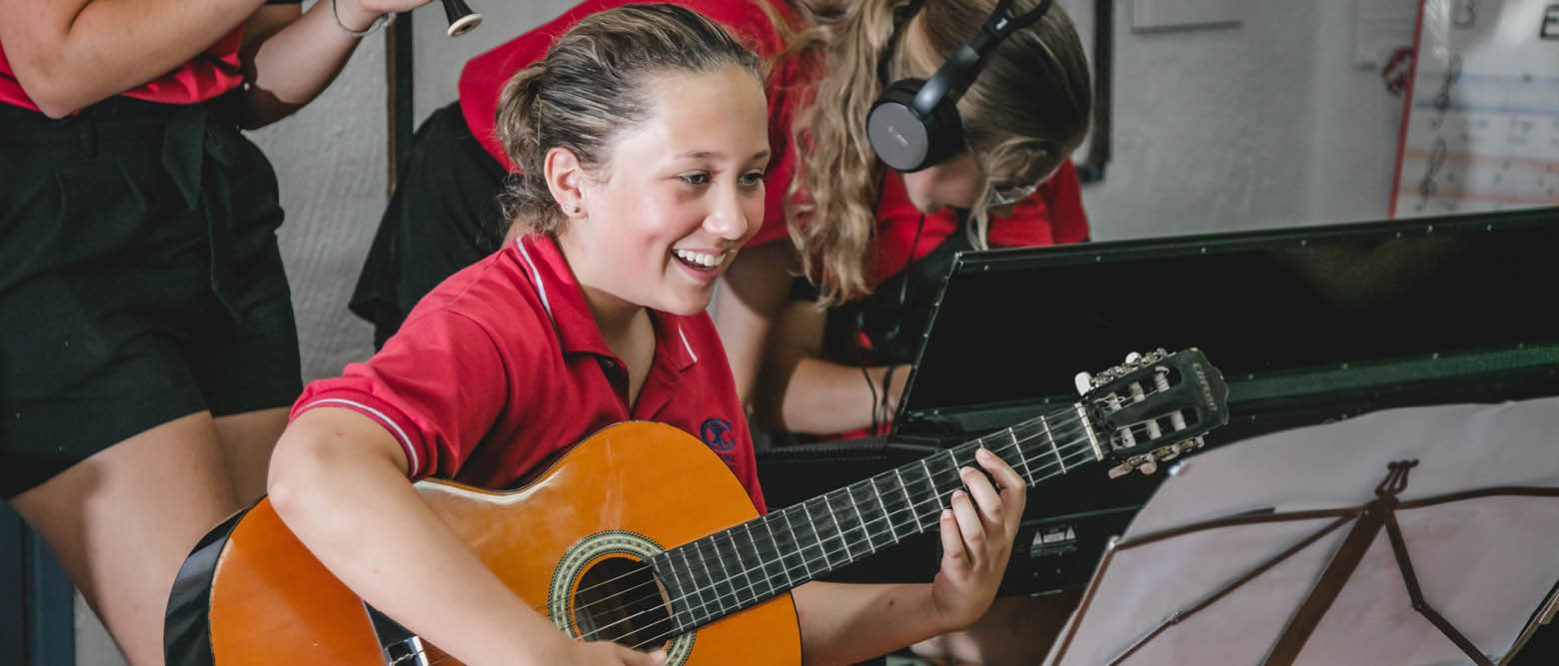Introduction
Following on from the foundations that the students have become more familiar with at KS4, the GCS A Level course enables students to explore their love for music in greater detail and gain a much wider range of musical knowledge and understanding. From Mozart to Jazz and Batman to World Music there is something that will appeal to everyone’s musical taste.
Theory is now part and parcel of studying the set works as they give ample opportunity to look at music theory in practice and in context and expand on their prior knowledge and understanding. More specifically, students learn how to harmonise a chorale investigating the different ways of writing for Soprano, Alto, Tenor and Bass. This is an invaluable skills to have whatever your musical tastes are because harmonising applies to nearly all genres.
There is also time for students to explore their creative side, composing two pieces of music during the course. One will be linked to the harmonising mentioned above, but the other gives ample scope for individuality and creativity. Although it is imperative that students have lessons outside of school on an instrument (including vocals) or can play to a certain level, there is time set aside in the classroom to have a jamming session when possible!
Teaching
Students have 4 lessons a week at KS5§ and are expected to participate in a club or lead a group at school (see KS3 information for details). At KS5, the different skills are usually combined and study naturally flows from analysing set works linked to essay writing to theory to composition. Students are expected to extend and expand their learning at home and to read around the set works to gain a wider knowledge and understanding of the genre.
Continual feedback on composition pieces allows the students to extend and develop their ideas and release the creativity within them! Some composing software is available on school tablets, but some prefer to use more technologically based software on their own devices. Again, students would be expected to be independent learners in this area and to continue researching the style they are composing in and extend musical ideas based on their findings.
Why study music at XIC?
Music gives students an opportunity to learn in a different way. Students have to be able to work efficiently as part of a team and also as an individual; they have to be perfectionists, yet realistic; they have to be able to present themselves in a way that they might not be familiar with. They also need to be dedicated and able to repeatedly conquer physical and mental challenges. In addition, music is therapeutic, giving an opportunity for self-expression and relieving stress. Singing and playing instruments has been shown to not only increase the capacity of your memory but also to refine your time management and organisational skills. Furthermore, it improves coordination, reading and exposes us to cultural history.
Groups are often small giving students the opportunity to access more individualised learning drawing upon their strengths and working on their weaknesses in a nurturing environment. Although it is a challenging course, previous students have commented on how it has been a pleasure to study a subject in a less formal setting and relieve their stresses during our practical sessions!


